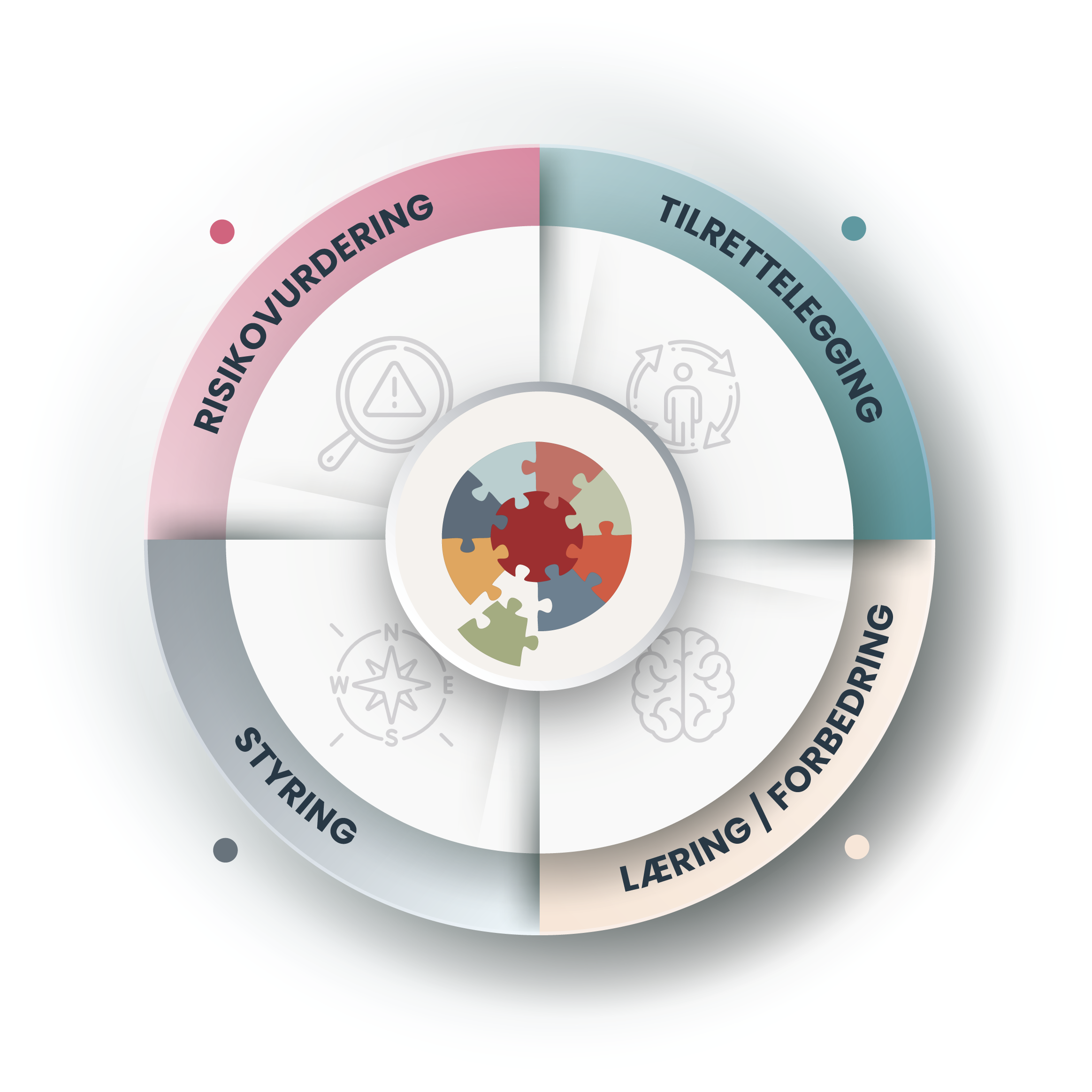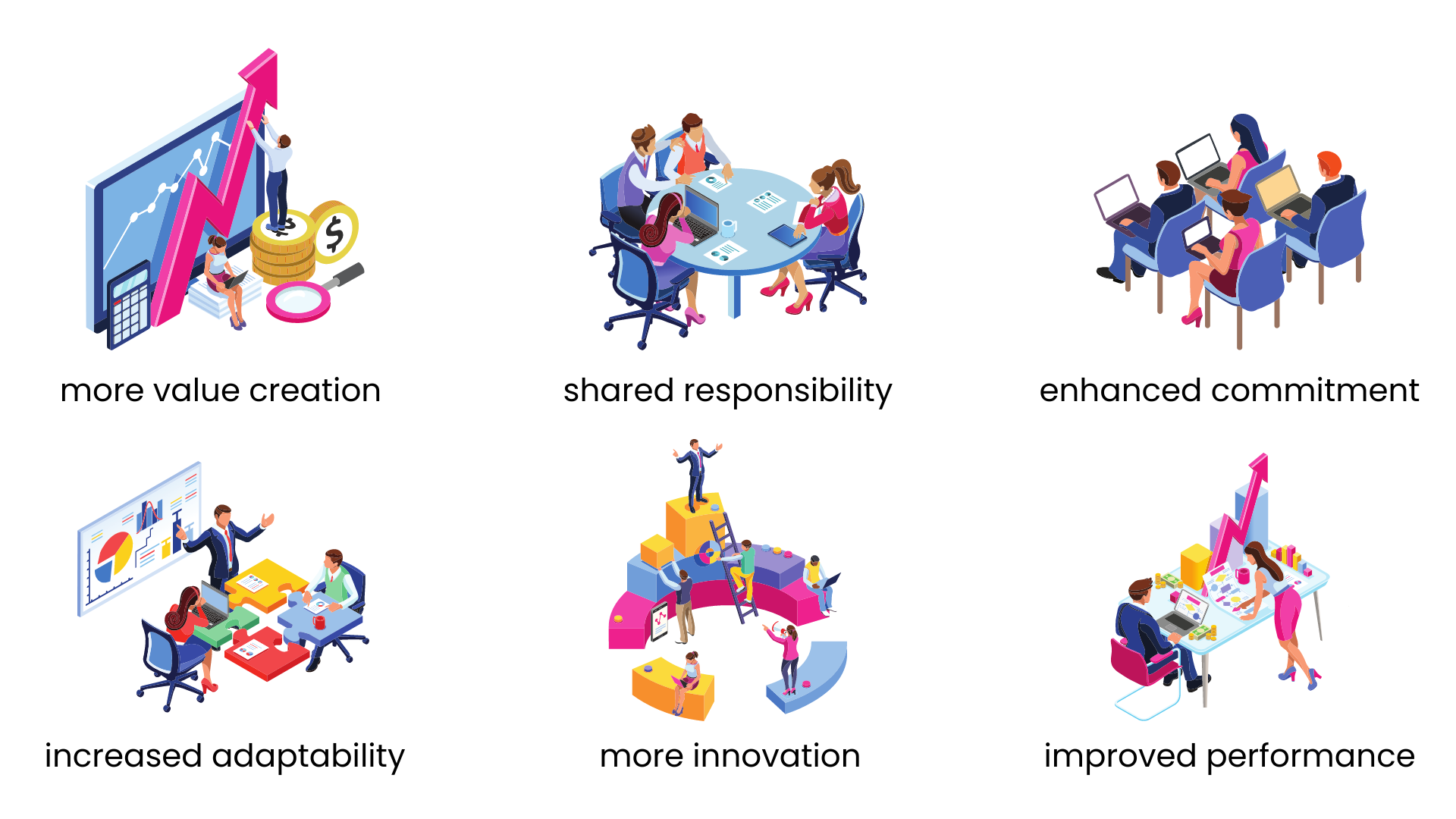Effective change is not just about introducing new technologies or restructuring departments. It's about people – and more specifically, how they collaborate and work as a team. By Siri Tordal Norman - Consultant
In today’s rapidly evolving business landscape, organisational change is often an essential step towards ensuring the continued success of a company. As the saying goes, “change is the only constant.” Underestimating the importance of collaboration during times of change could be a grave mistake, one that may even jeopardize the very existence of an organisation.
The Power of Collective Intelligence
No matter how competent or experienced an individual may be, the collective intelligence of a diverse group almost always exceeds that of an individual. When people collaborate, they bring together a plethora of experiences, perspectives, and skills, which when combined, can lead to innovative solutions and strategies that wouldn’t have been evident otherwise.
Bridging the Gap between Strategy and Execution
A well-thought-out strategy is only as good as its execution. Collaboration ensures that everyone is on the same page. When teams work together, they can iron out discrepancies, address concerns in real-time, and ensure that the strategy is implemented in the most effective manner. Without this level of teamwork, the chances of miscommunication or misalignment increase manifold.
Building Buy-In and Reducing Resistance
Change often meets resistance. One of the primary reasons for resistance is a lack of understanding or feeling of exclusion from the decision-making process. When employees are involved in collaborative discussions about organisational change, they are more likely to understand its importance and buy into the vision. This not only reduces resistance but can also turn potential naysayers into advocates for the change.
Shared Responsibility and Accountability
Organisational change is a significant undertaking, and its weight shouldn’t fall on a single department or individual. Through collaboration, the responsibility is shared, leading to a more invested team. When everyone feels they have a stake in the success of the change, they are more likely to be accountable for its success.
A prime example of effective implementation can be seen in our project with Equinor. The aim was to revitalise their mandatory HSE (Health, Safety, and Environment) course. The main focus has shifted towards the pivotal role of collaboration, which forms the foundation for safe operations and execution.
By fostering collaboration across every level and segments in the organisation, the company strives to ensure risk assessment, facilitation, learning and improvement, and effective management, ultimately driving towards the goal of zero harm.
Read more about the project here.
Enhanced Morale and Commitment
The process of change can be daunting. However, when employees collaborate, they draw strength from one another. Celebrating small wins, offering support during challenges, and continuously communicating can boost morale. Teams that work closely develop a sense of camaraderie and commitment not just to the task at hand, but to the larger organisational goals.
Adapting to Unforeseen Challenges
Change is often riddled with unforeseen challenges. Collaborative teams, given their diverse skill sets and perspectives, are better equipped to adapt and pivot when faced with such obstacles. Instead of viewing challenges as setbacks, collaborative teams see them as problems to be solved collectively.
In conclusion, while the technicalities of organisational change – the ‘what’ and ‘how’ – are undoubtedly essential, it’s the ‘who’ that often determines its success or failure. A cohesive team that understands the importance of collaboration will not only navigate the complexities of change more effectively but also emerge stronger, more agile, and more innovative on the other side. As organisations plan for change, they must place collaboration at the forefront, or they risk losing everything they’ve worked so hard to build.







